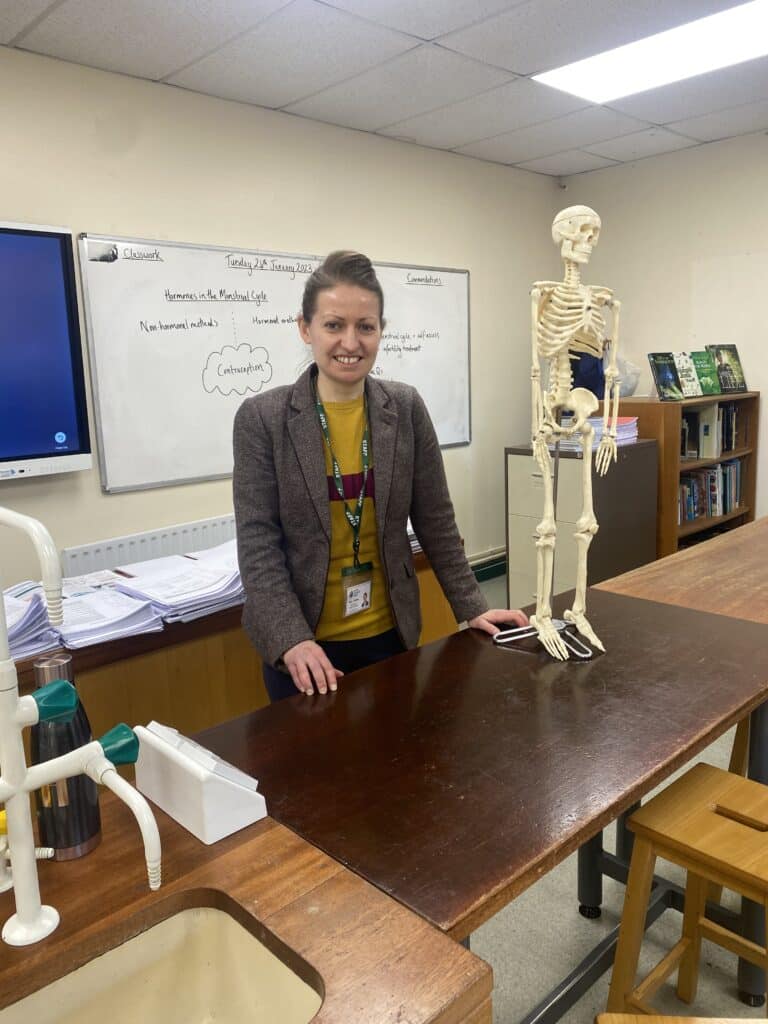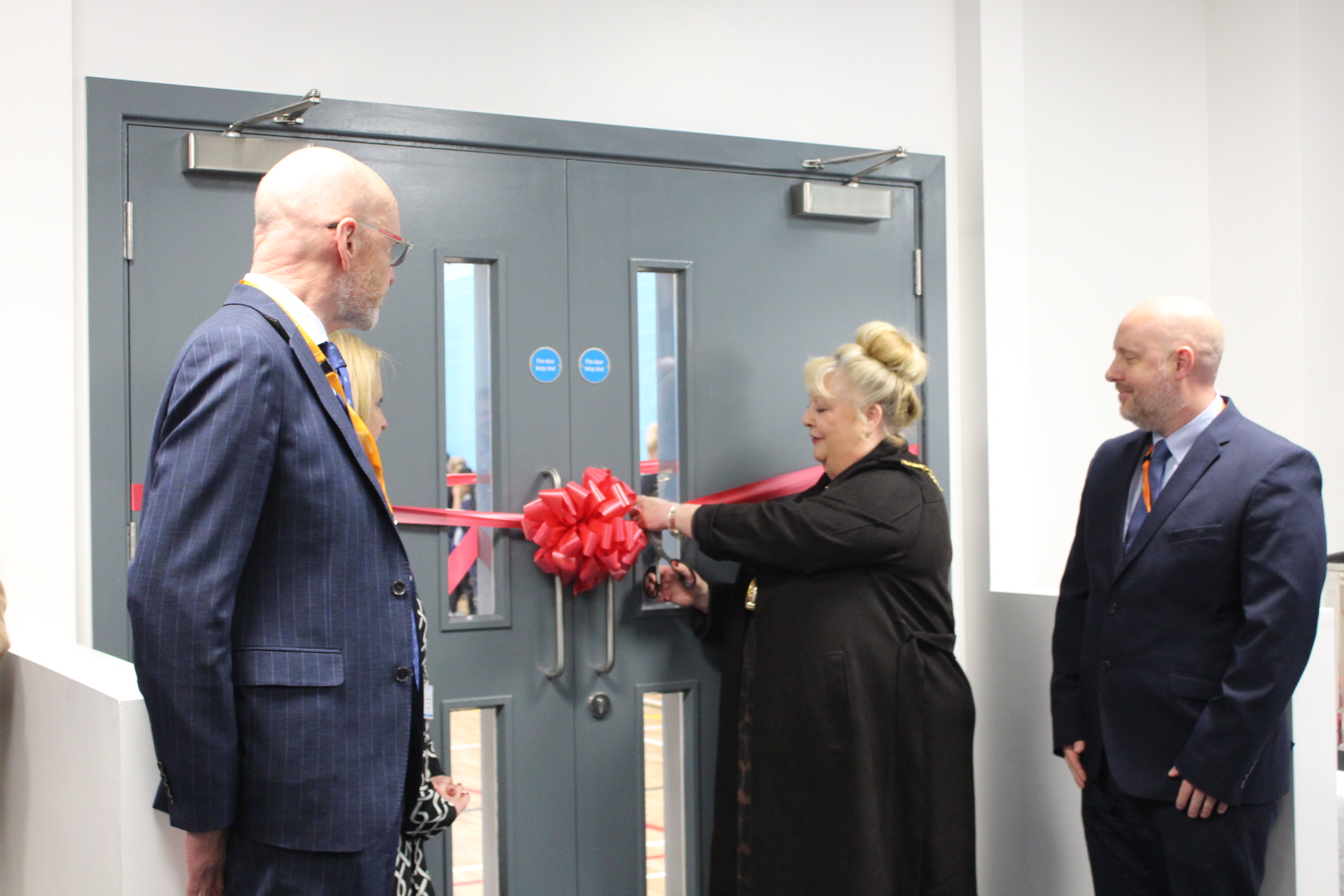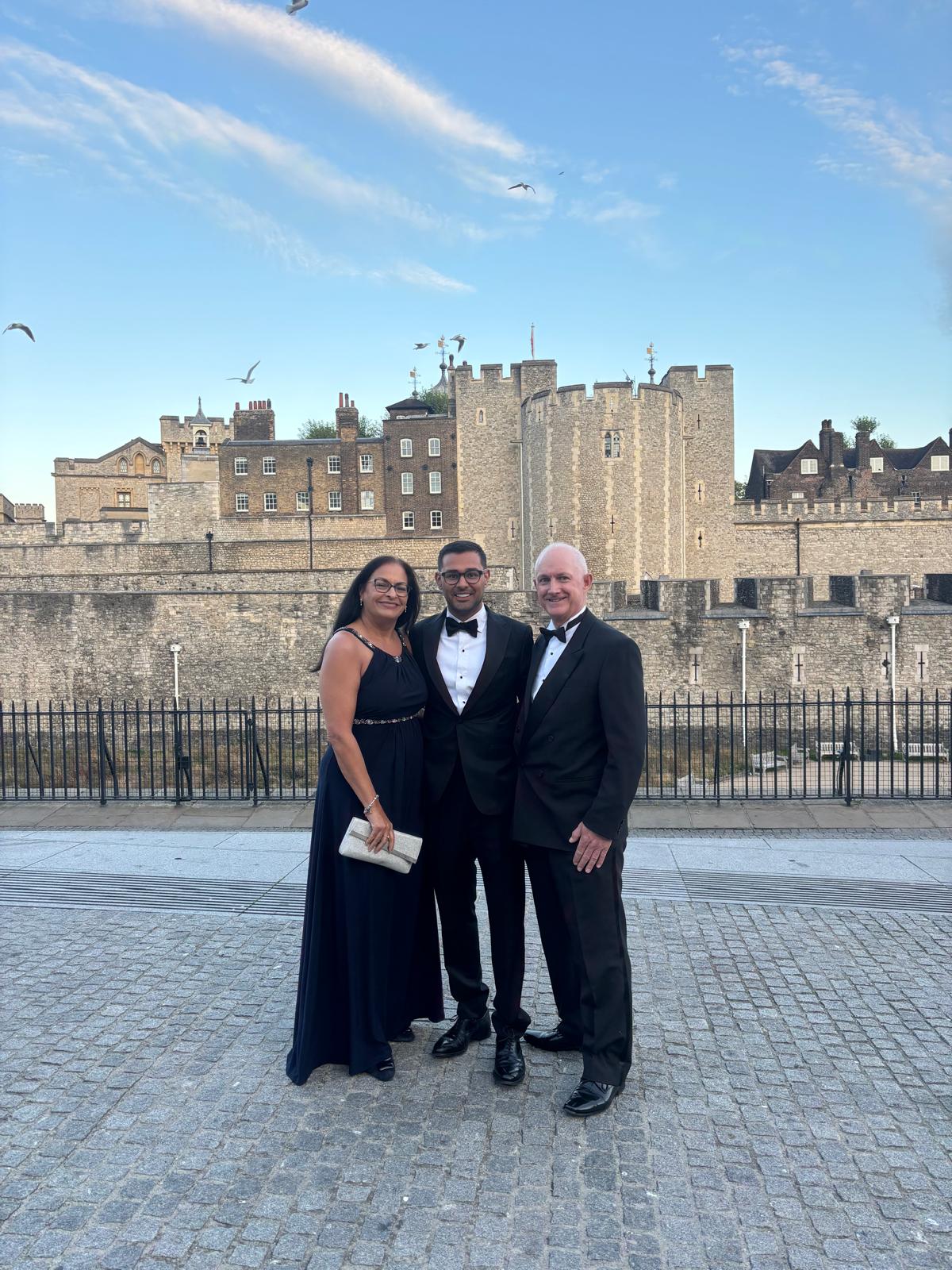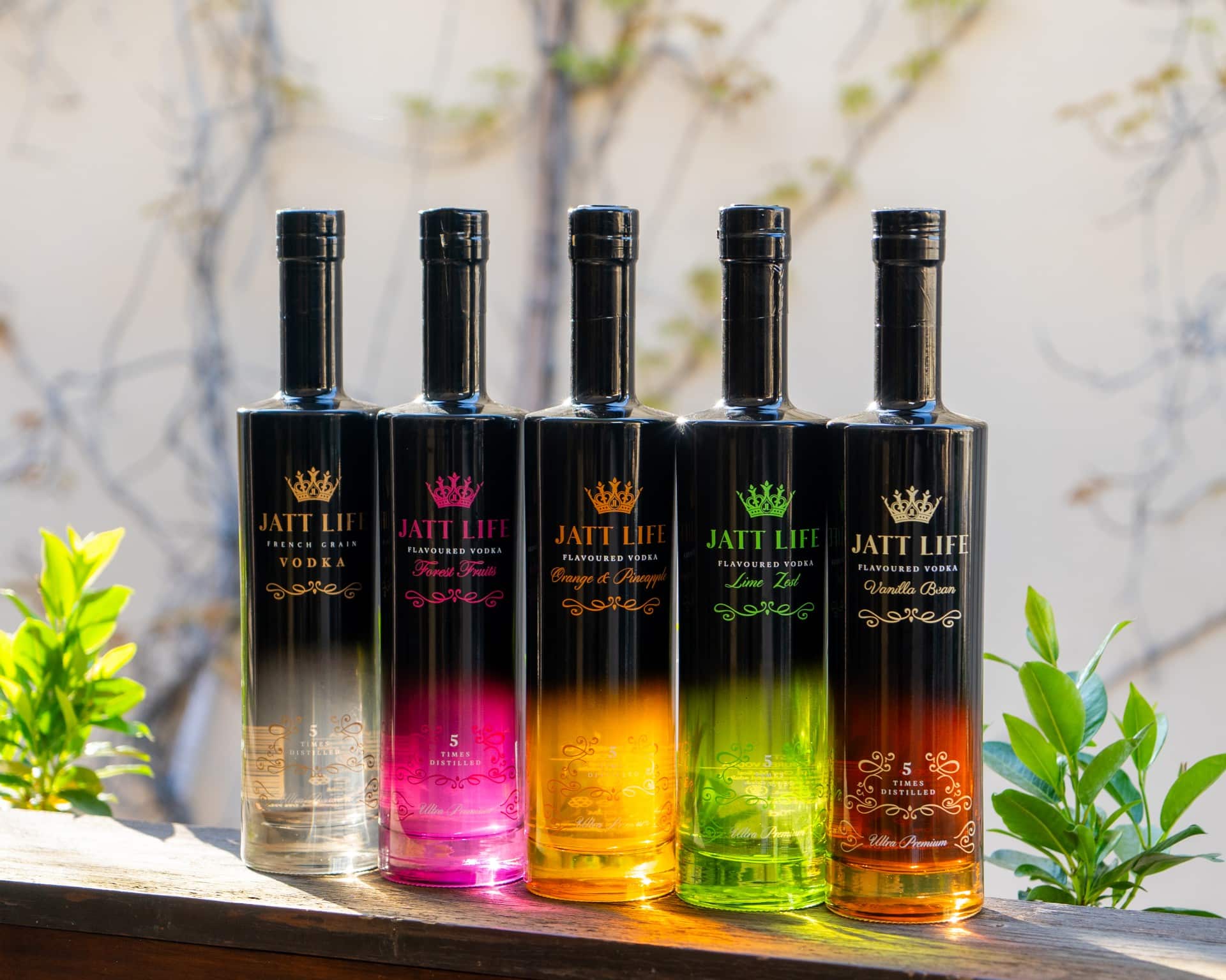A former professional footballer is bringing lessons from the pitch to the classroom as a biology teacher at Derby Grammar School.
Lauren Walker played for top teams including Arsenal and Aston Villa in the Women’s Super League and says the benefits of football are with her every day and the lessons she learned through professional sport are ones she is still able to share with pupils.
“Football has given me self-discipline, it has taught me to be motivated and resilient,” reflects Lauren, who still exercises every day – running and doing strength and conditioning training.

“I do think sport is something every child should have exposure to because it breeds so many good habits, not only does it hugely benefit your physical and mental well-being, but it teaches teamwork, effective communication and tenacity.”
Sport certainly fed the drive and determination Lauren has. According to her family, she kicked a ball as soon as she could walk and did Samba Soccer Schools from when she was young, moving on to play for Port Vale football club’s girls under 10s team.
She then went for trials at her local team, Stoke City, which had just been made an academy for female football, starting playing there when she was 14.
When she was 16, Lauren was balancing her studies with playing for the ladies first team at Stoke City, playing fixtures on a Saturday for the under 16s and then Sunday for the first team alongside players 10 years her senior.

“It did me a lot of good and made huge strides in my development as a player, both from a technical and physical perspective – my tactical awareness, decision making, fitness and strength all improved hugely as a result,” said Lauren.
Her skills were spotted and she was asked to go for trials at Arsenal, attending a weekend practice at the team’s training ground. She was successful and got into Arsenal ladies academy. But the move came with sacrifices.
“It was a big turning point for me,” said Lauren. “I was studying for my A levels at the time but I needed to move and live there and do their education programme. I had been in my first year of studying Biology, Chemistry, PE and Art and they only offered a Sport and Exercise BTEC. It wasn’t ideal but I paused my A levels and went because it was such an amazing opportunity.”
Lauren was training at the same ground as the men’s first team, and, during her three years there, was able to begin their degree programme, opening up the opportunity to represent Great Britain at the University World Games in Belgrade 2009.
“The whole experience was incredible and, on a scale, very close to that of the Olympics, the only difference being that each country’s team is selected from the large pool of students enrolled on a university course at that given time,” said Lauren. “We came home with the bronze medal; most certainly one of the pinnacles of my career, alongside playing for Arsenal ladies.”
The amazing experience also brought its challenges.
“I was playing in the reserve team at Arsenal and was always working tirelessly to get selected for the first team but it could sometimes feel like a closed door,” said Lauren.
During her time playing for Arsenal’s reserves team, the first team was made up of players of the highest calibre who paved the way in women’s football, the likes of Kelly Smith, Alex Scott, Karen Carney and Jayne Ludlow.
“Arsenal ladies were at their pinnacle. For us at the time, getting into the first team was impossible,” she said.
Women’s football was beginning to gain recognition, investment and sponsorship was starting to happen but it was still not something it was easy to make a career out of – even when playing for the top clubs in the country.
“When we witnessed the first team achieving so much, it did push us on, we thought ‘we are going somewhere, the game is moving forward’,” said Lauren. “Could you make a career out of it? That was still in the balance but it was becoming more hopeful.”
Lauren played for Arsenal for three years, battling for a spot in the first team, and said she learned a lot about herself and developed a lot of mental agility during that time.
“Resilience is hugely important in all aspects of life, and at times being at Arsenal was frustrating for me, it felt like a closed door, but you learn to explore other avenues.”
Lauren decided to move from Arsenal to do a long-distance learning course in Sport and Exercise Science through Manchester Metropolitan University, whilst continuing to play in the first teams of top clubs, including Wolves and Blackburn Rovers ladies’ teams.
During that time the women’s Super League was established – the equivalent of the men’s Premier League, and Lauren went to play for Aston Villa, one of the clubs in the newly established league.
“That was great, the recognition the league brought. The women’s game was still on that brink at the time, we weren’t earning anything really,” said Lauren.
In fact, although training three times a week and playing fixtures as well, Lauren still had a job, working for a private school in Shrewsbury leading their sports scholarship scheme. It highlights the gulf which still remained between the men’s and women’s game.
“I was in my third year at Shrewsbury and I knew that to progress further I needed to be a qualified teacher so I came away and did my teacher qualification and then went back into teaching and that’s what brought me to Derby.”
She left football behind her, but brought with her the lessons it taught.
“Resilience is a big one you want to instil in pupils. We all have setbacks but it is about teaching them to try again and sometimes, you have to re-evaluate and try something else,” she said.
She is also able to reflect on the role she played in the development of women’s football, particularly when she watched the Lionesses lift the European Championship trophy last summer.
“I felt so proud to have at least played some small part in getting the game to this point, and seeing them receive all accolades they so rightly deserved was an unforgettable moment,” she said.
“The journey women’s football has gone on over the past five years has been incredible. For many playing football has become their full-time job, something I always dreamed of as a young girl. However, in terms of gender equality there is still some way to go.”
Lauren also had a role as sports scientist for Stoke City Girls’ RTC from 2009 – 2015 and was involved in the development of Hannah Hampton, the England Women’s goalkeeper.
“It is something I’m proud of and hope that in my coaching capacity I will have been able to inspire and influence others on their journey of development towards excellence in the women’s game,” she said.
Now, Lauren enjoys being able to teach the subject she developed such an interest in throughout her education, and is now able to share with her pupils the links between the curriculum in biology and sport.
And Miss Walker still gets to show off her skills every now and then.
“If I’m in the playground and the football gets kicked over my way, I have been known to do a few keepie uppies and then kick it back and the lads cheer ‘Yes Miss!’”








